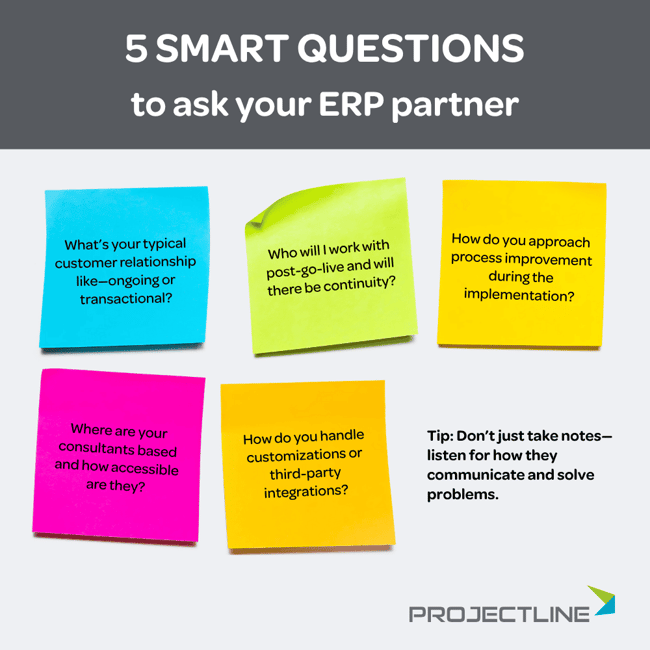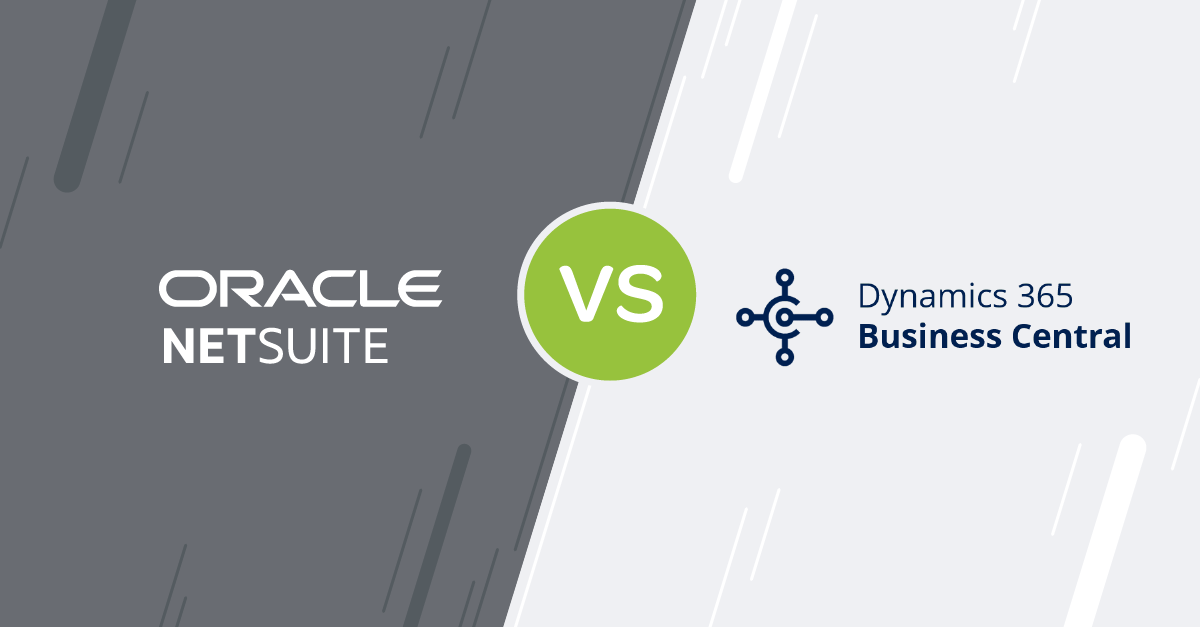Blog
Share this
Should You Work with a NetSuite Implementation Partner or Go Direct?

by Carly Caines on October 24, 2025
You’ve done the research and narrowed in on NetSuite as the right ERP. But before you dive into implementation, there’s one more important choice to make:
Do you go directly to NetSuite for your implementation? Or do you work with a NetSuite partner?
It’s a question that doesn’t always have a clear-cut answer. On the surface, both options offer the same software, but how it’s delivered can influence everything from your initial rollout to the long-term success of your system.
In this article, we’ll walk through what each option looks like, how they differ and how to decide which one fits your business best. You’ll also get tips on what to look for to ensure success—no matter which route you choose.
Understanding the NetSuite delivery ecosystem
Once you’ve chosen NetSuite, your next step is to figure out how to implement it. There are two main paths to consider: working directly with NetSuite or working with a NetSuite partner.
When we refer to a NetSuite partner, we’re talking about a Solution Provider that sells, implements and supports NetSuite.
While both paths lead to the same software, the structure of the project—who manages it, how it’s delivered and what kind of support you receive—can differ.
NetSuite Direct
When you work with NetSuite Direct, you’re buying the software from Oracle NetSuite (the publisher of the system). Your implementation may be handled by NetSuite’s internal delivery team or by a contracted Alliance Partner, depending on resourcing and project scope.
In many cases, the internal delivery team will follow NetSuite’s SuiteSuccess methodology, while a traditional or more complex implementation is outsourced to an Alliance Partner.
NetSuite Solution Provider
NetSuite Solution Providers are independent, certified firms that sell, implement and support the software. They offer a single point of contact for your NetSuite solution and often provide more expertise in terms of business process consulting and software customization.
Partners can deliver SuiteSuccess, a traditional implementation or a hybrid approach, depending on their methodology and your business requirements.
| NetSuite | NetSuite Solution Provider | |
| Who implements the software | Implementation is delivered by NetSuite’s internal team or outsourced to an Alliance Partner, depending on project scope and internal capacity | The partner you purchase NetSuite from implements the solution |
| Industry-specific experience |
Offers solutions aligned to common industry categories, typically based on standard best practices |
Varies by partner, with some specializing in specific industries and others having broad experience |
| Customization and integration capabilities | This typically falls outside the scope of a SuiteSuccess implementation, and would be handled by an Alliance Partner | Varies by partner—some have more expertise and in-house development capabilities than others |
| Support | Basic NetSuite software support comes standard with all subscriptions. If implemented by an Alliance Partner, additional support programs may be available through the partner | Basic NetSuite software support, with the option for additional support programs through the partner |
| Communication and continuity |
Team may be in separate organizations or countries—this can make information sharing more disjointed |
Teams often operate within the same organization, which can support smoother communication and project continuity |
When you should consider going Direct
If you're coming off a basic accounting system like QuickBooks and your goal is to get a strong foundation in place with minimal customization and a smaller budget, going directly through NetSuite can be a solid option.
In this model, you’ll typically be placed on a SuiteSuccess implementation—a fast-track deployment that uses NetSuite’s preconfigured templates and workflows. It’s designed for businesses with straightforward processes and standard needs, where the priority is getting live quickly with a reliable baseline system.
Some businesses also feel more comfortable working directly with the software vendor. But it’s worth understanding how the delivery model works. While NetSuite handles the licensing, your implementation may be outsourced to an Alliance Partner of their choosing, which may or may not use implementation resources in your time zone. This can introduce risk, as information sharing isn’t always seamless across different organizations and communicating across time zones can create challenges during your project.
That doesn’t mean the model is broken or bad—but it does mean you’ll want to be proactive in asking who will be delivering your project and how they plan to maintain alignment and communication throughout the process.
In short, consider going direct if:
- You’re moving off QuickBooks or another basic accounting system
- Your processes are relatively simple and align well with SuiteSuccess templates
- You don’t need customization or integration out of the gate
When you should consider working with a Solution Provider
If your business has more complex processes, is growing quickly or needs a more tailored implementation approach, working with a NetSuite Solution Provider may be a better fit.
Partners typically offer a more consultative experience. They’ll help you determine early on which implementation approach is the best option for you. In the case of a traditional implementation, many will start with a discovery process to understand your workflows, challenges and goals—then design the system around how your business operates. That discovery-driven approach can help avoid costly workarounds later on.
For companies that want more than just a software vendor, a Solution Provider can offer a long-term partnership. When you go live with NetSuite Direct, you’re often handed off to a separate support team that wasn’t involved in your implementation. Over time, consultant turnover can lead to lost context and limited system knowledge, especially in larger organizations such as NetSuite, Alliance Partners or larger Solution Providers.
With many Solution Providers, the team that implements your system is the same team that continues to support and evolve it. This kind of long-term relationship helps preserve institutional knowledge about your business and system, which becomes increasingly valuable as your needs grow and change.
Not all partners offer the same level of service. Experience, methodology and industry knowledge can vary across partners—so it’s important to do your research. A good partner should take time to understand your business and have a track record that builds your confidence, not just their sales pipeline.
Consider working with a partner if:
- Your business has evolving or non-standard processes that need more flexibility
- You want a more through discovery process to ensure the system works around your needs
- You need customization, integrations or industry-specific workflows
- You value a long-term relationships, including ongoing support and guidance
How to choose right partner—no matter the route
Whether you’re working directly with NetSuite or through a partner, one thing stays the same: the success of your implementation depends on the people delivering it.
That’s why it’s worth taking the time to evaluate who you’re working with and how well they understand your business.
A good implementation team won’t just walk you through the software. They’ll ask questions that help uncover how your business operates, where your pain points are and what your goals look like beyond go-live. If you’re not getting that level of engagement early in the process, it’s worth pausing to ask why.
Here are a few things to look for:
- Discovery process: Are they asking detailed, thoughtful questions about your operations, workflows and future plans?
- Industry experience: Have they worked with companies like yours before? Not just in theory, but in real implementation projects?
- Development capabilities: What’s their track record for developing customizations and integrations with other systems?
- Approach to change management: Do they offer training and support that helps your team adapt to the new system?
- Team structure: Will you know who’s doing the work, or is there a long chain of handoffs? Where are those resources located?
- Transparency: Are they upfront about timelines, risks and responsibilities?
No two businesses are the same, and no two implementation teams are either. Asking the right questions now can save you time, frustration and costs later on.

Conclusion: The right fit comes down to your needs
Choosing between NetSuite Direct and a NetSuite partner isn’t about which option is better—it’s about which one is better for you.
Both models offer the same core software. The difference lies in how the system is delivered, who’s guiding the process and how much flexibility you need along the way.
If your business is relatively simple and you’re looking to get up and running quickly, working directly with NetSuite may be the right path. If your operations are more complex or evolving, a partner may offer the deeper support and customization you need.
Either way, the key is to stay informed, ask questions and make sure the team delivering your system understands not just the software—but your business.
Need help figuring out the right fit?
Every business is different. If you want a sounding board to weigh your options, we’re happy to help. No pressure, no pitch.
Frequently asked questions
Are NetSuite partners more expensive?
Not necessarily. Costs vary depending on your scope, the partner’s services and your implementation approach. Some partners may be more cost-effective long-term if they reduce the need for rework or post-go-live consulting.
Can we switch to a partner later if we go Direct?
Yes, many companies start with NetSuite Direct and later engage a partner for optimization, customization or support. Keep in mind that you’ll likely pay an initial system assessment fee when engaging with a new partner, so they can get a solid understanding of your solution and any challenges you’re facing. If you’re changing partners, this is an important step that you don’t want to skip, but you can avoid it altogether by choosing a partner that’s a good fit for you right from the start.
Share this
Stay in the Know!
Join other SMEs who receive our monthly ERP insights, tips and best practices.
You may also like

ERP Funding for Canadian Businesses

Should You Work with a NetSuite Implementation Partner or Go Direct?



